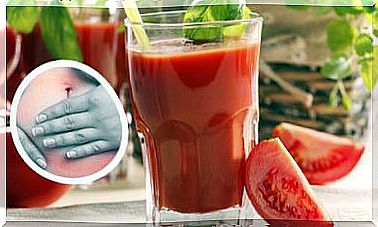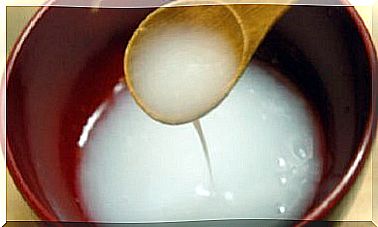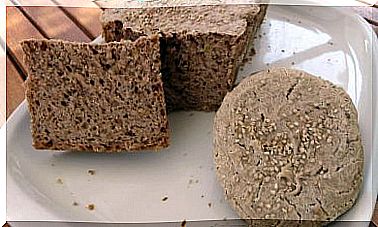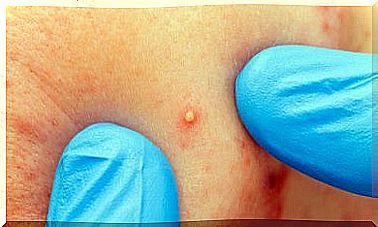Gastroesophageal Reflux: Do You Suffer From It Without Knowing It?
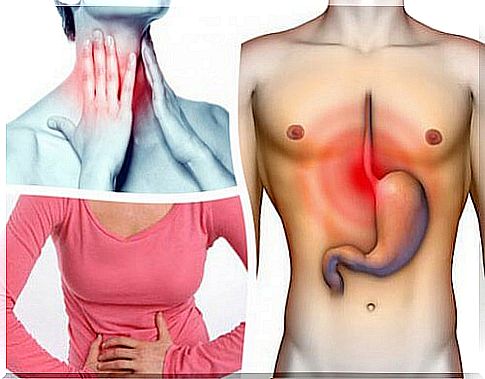
Gastroesophageal reflux, an increasingly frequent digestive disorder, is characterized by burning and a sense of discomfort, localized both in the stomach and in the esophagus. Symptoms almost always appear soon after drinking or eating.
Some people suffer from this disorder without knowing it. Find out in this article what the symptoms are and how to treat gastroesophageal reflux with natural remedies.
What does it mean to suffer from “gastroesophageal reflux”?
To understand what this digestive problem consists of, let’s start by analyzing the words that make up the name.
“Reflux” means back flow. When the organism is healthy, after eating, muscles and acids start the digestive process. During this process, the door located at the entrance to the stomach closes, to prevent its irritating liquids from escaping and irritating the esophagus.
When you suffer from reflux, this mechanism does not happen correctly. The door does not close properly and opens, letting the gastric juices pass. Along with these also part of the food.
To get a better idea, think about when you had to throw up. There remains an acidic taste and sensation, as if it burns the chest and mouth. This is due to the fact that the food has returned to the throat from the stomach with its acidic juices.
Returning to reflux, if the person suffers from it several times a month or even a week, it is called gastroesophageal reflux or GERD.
What causes gastroesophageal reflux?

Among the causes of this problem, which appears after eating (little or a lot of it), we find:
- Presence of hiatal hernia, which presses the upper part of the stomach and weakens the esophageal sphincter, facilitating the escape of gastric juice.
- Ingestion of certain medications such as aspirin, anticholinergics, high blood pressure medications, bronchodilators or dopamine. Each of them exerts a different action on the esophagus and stomach.
- Wrong eating habits such as, for example, eating too much or between meals, consuming very spicy or irritating foods, basing your diet on overly processed or fast food foods.
- Pregnancy. Many women suffer from this problem only during gestation : the weight of the baby on the stomach makes the door of the esophagus open more easily. Nevertheless, care must be taken, as this dysfunction may continue even after delivery.
- Overweight. Something similar happens to the situation of pregnant women. Ingested foods and abdominal fat increase pressure on the stomach and force food back into the esophagus.
- Stress, anxiety and nervousness. These situations favor stomach tension which loses its balance.
The most frequent symptoms of gastroesophageal reflux are:
- A burning sensation or pain in the breastbone (heartburn).
- Regurgitation (food returns to the mouth).
- Difficulty in swallowing.
- Non-cardiac chest pain (can be confused with myocardial infarction).
- Belching.
- Feeling of heaviness after eating.
- Nausea
- Hiccup.
- Throat discomfort (larynx and pharynx).
- Aphonia.
- Feeling of having a foreign body in the throat.
- Cough at night.
- Bronchoconstriction.
- Internal bleeding.
- Anemia.
How to cure gastroesophageal reflux naturally?

It is very important to lead a healthy lifestyle, especially at the table. For this it is essential to eliminate:
- Coffee
- Sweet drinks
- Chocolate
- Tomato sauce
- Alcoholic beverages
- Vinegar
- Fats of animal origin and sausages
- Very spicy toppings
- pepper
- Chili pepper
- Mustard
- Milk and dairy products
It should also be remembered that to reduce or prevent reflux it is important to:
- Do not do physical activity after meals (better to rest seated, at most, take a short walk).
- Avoid going to bed immediately after eating.
- Don’t bend over after eating.
- Don’t eat in a hurry.
- Avoid lifting heavy objects after meals.
- Chew each bite well.
- Don’t argue or talk too much at the table.
- Avoid ingesting food when angry or upset.
- Do not drink cold sugary drinks or fruit juices with meals.
- Avoid smoking.
- Dine early and lightly.
- Do not wear belts or clothes that tighten the stomach too much.
- Try to reduce overweight.
- Practicing yoga or meditation.
Recommended foods for those suffering from gastroesophageal reflux
- Fresh salads
- Natural fruit juices
- Vegetable milk (rice, oat, almond or millet)
- Probiotics (yogurt or kefir)
- Honey
- Dried fruit
- Herbal teas (especially comfrey root, rue or gentian)
- Cardamom
- Ginger
- Basil
Natural remedies for gastroesophageal reflux
When you feel an “attack” of reflux coming, do not hesitate to consume:
Apple cider vinegar
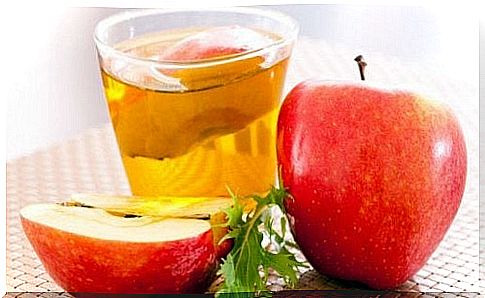
Mix a tablespoon of apple cider vinegar (15 ml) in a glass of water (200 ml). Drink before eating to calm the stomach and aid digestion. It also works when drunk after meals.
Sodium bicarbonate
It is a compound with a thousand properties. In this case, it works as a natural antacid, relieves stomach pain, gastritis and reflux. Dissolve a tablespoon of baking soda in a glass of water and drink before it starts to bubble.
Aloe vera juice
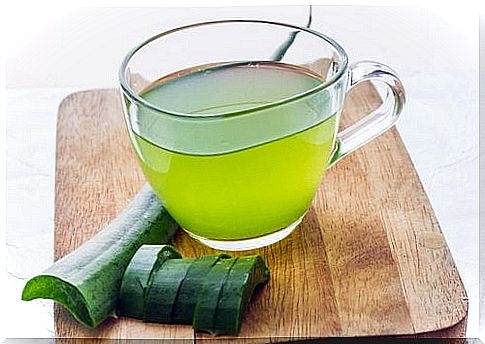
Don’t have an aloe vera plant in your home yet? What are you waiting for! It is a natural product that treats many ailments. In the case of reflux, its juice will be of great help to you.
Dilute the content of one leaf (about 30 grams) in ½ glass of water (100 ml). Drink when you feel symptoms appear.

